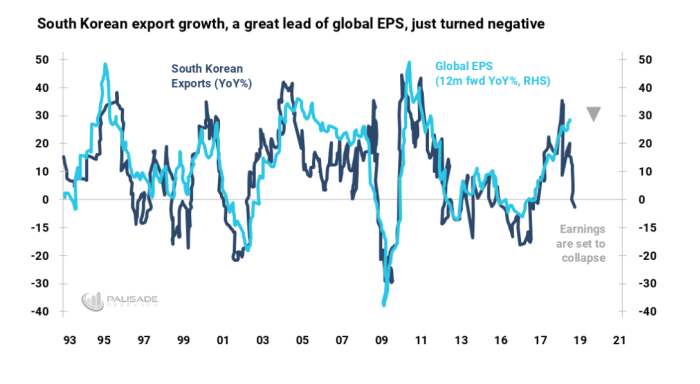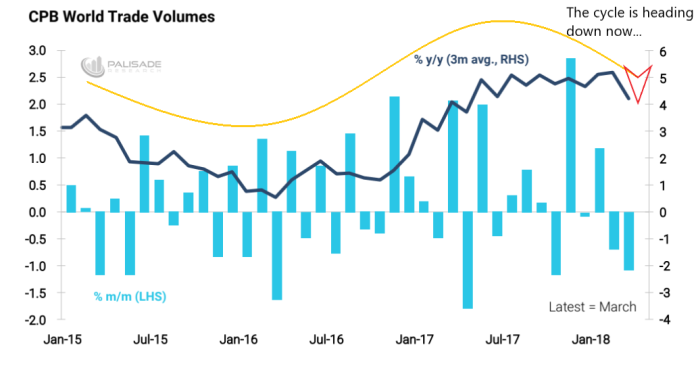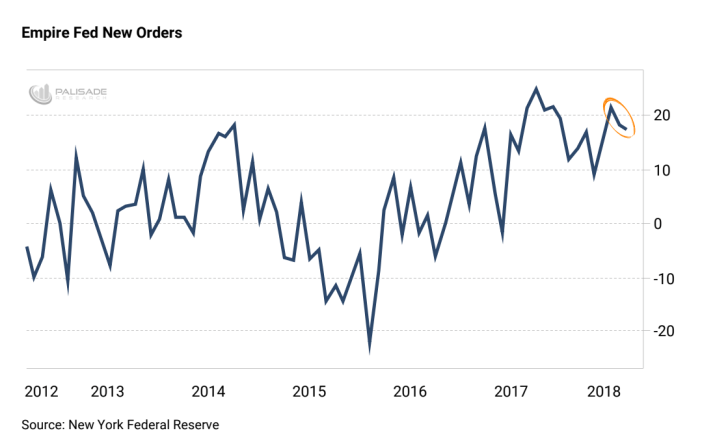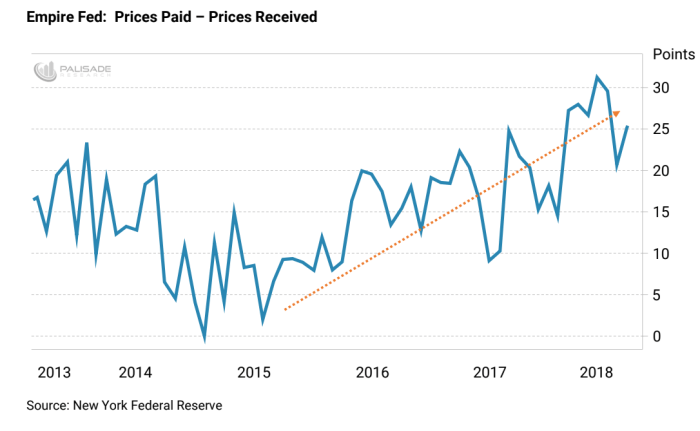Readers have followed my hypothesis that there’s going to be a global earnings recession sometime during summer 2019.
Why do I believe this?
For starters: I wrote in early May that the little-known-but-historically-accurate South Korean Export Growth Indicator (what I call SKEG) signaled a coming earnings recession.
Why has this indicator been such an accurate signal over the last thirty years? Who knows. But before each major earnings recession – South Korean exports have dropped.

Secondly: we’ve seen world trade collapse over the last year. I wrote in June that across the board, there’s steadily declining world trade.

And thirdly: there’s a global dollar shortage that’s killing the Emerging Markets and causing foreign currencies to plummet against the dollar.
This is a huge problem because corporate balance sheets worldwide won’t be able to handle the pressure of a stronger dollar. Just look at what’s happened to the Emerging Markets already – such as Turkey and Argentina – over the last few months.
Putting it simply, every time the dollar gets stronger – the more it costs these countries and corporations to pay their dollar-denominated debts back (which there’s a huge amount of).
“The corporate sector is highly leveraged and could be very vulnerable to higher interest rates,” he [Joseph LaVorgna, chief Americas economist at Natixis] warned, explaining in a research note that a primary reason corporate debt-to-GDP is so high is thanks to interest rates being historically low due to quantitative easing and forward guidance…”
That brings us to yesterday’s Empire State Manufacturing Survey (EMSS) results from the New York Federal Reserve.
The Empire State Manufacturing Survey tracks the general business conditions in New York State. And the results are compiled from about 200 manufacturers. It isn’t make-or-break data, but it’s a good snapshot of corporations and what’s going on.
Most headlines showed an upbeat tempo with “hope” rising – but the real story was between the
lines. . .
It shows a worrying trend of slowing new order growth – as well as declining profit margins.
New Orders have declined the last three months straight. And down roughly 30% from this time last year.

The U.S. dollar is up over 8% since February 2018 – which’s going to affect exports (remember a strong dollar makes U.S. exports less attractive abroad).
This trend should worsen throughout the year – especially as China and other countries retaliatory tariff’s kick in. . .
Making matters worse, the difference between the New York Fed’s ‘prices paid index’ (costs) minus ‘prices received index’ (revenues) widened by 25% throughout August for the first time in three months.
This trend has steadily risen since mid-2015.

What we can gather from all this is that firms are feeling significant pressure making profits. And most likely will continue to worsen.
Companies are being crushed from both sides: rising interest rates eating away at their earnings – plus orders and profit margins in decline.
The above is just another example of why a 2019 earnings recession is becoming more certain.
I’ll continue to monitor these trends – but things are looking worse each month.
